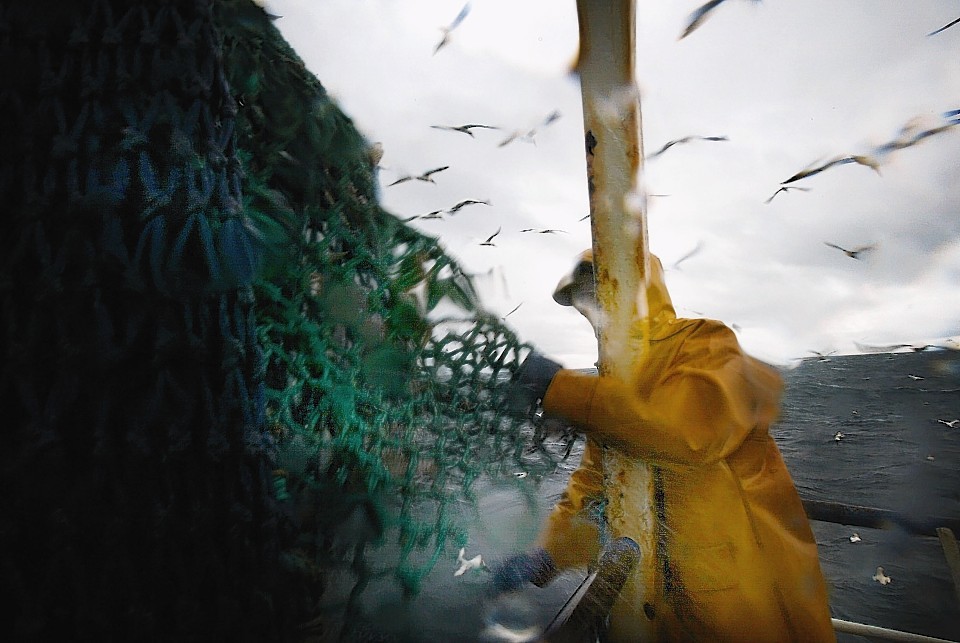The Scottish fishing industry’s quest for answers on the implications of September’s independence referendum has produced lengthy responses from the governments in Edinburgh and London.
Whether it helps or hinders the Scottish Fishermen’s Federation (SFF) in trying to get a better understanding of what a Yes or No vote will mean is another matter.
SFF got the ball rolling in April, when chief executive Bertie Armstrong told the Press and Journal politicians on both sides of the debate had failed to explain what was at stake for the fishing fleet.
However, he said the onus was more on the Yes camp to provide clarity on what the future held as it was proposing the biggest change.
The industry body, which represents more than 500 vessels, from inshore creel boats to pelagic trawlers, has stressed it is apolitical – so cannot advise members which way to vote.
But it is doing a risk assessment and Mr Armstrong wrote to Scottish Fishing Minister Richard Lochhead and his Westminster counterpart, George Eustice, seeking advice on the risks and benefits of whatever Scotland decides.
Mr Lochhead predictably replied that fishers would fare much better in an independent Scotland as they would be a national priority.
Direct representation in the European Union would lead to better protection for the industry and a fairer share of funding, he said.
Mr Lochhead added: “Scotland is the second biggest contributor to EU/Norway fish negotiations and is at the heart of the delicate and complex access agreements involving 27 other countries.”
“A clear benefit of being an EU member state in our own right will be our ability to negotiate directly for Scottish priorities at the top table in Europe without them being compromised or diluted in favour of wider UK objectives.
“Scottish priorities not deemed sufficiently important to be included in the UK’s negotiating priorities would get an airing that they are currently denied.
“An independent Scotland will also benefit from being able to form alliances and blocks with other member states.”
Just as predictably, Mr Eustice said the fishers’ interests were served best by Scotland remaining part of the UK.
He added: “Scotland directly benefits from significant UK influence in Europe and a long-standing track record of securing positive outcomes.
“Recent examples have included the reformed Common Fisheries Policy, where the UK successfully secured a new model of decentralised decision-making.
“The UK Government also prevented a cut in days at sea for Scottish Fishermen at EU Fisheries Council 2013, an increase in 2014 North Sea cod quota and ensured a deal on mackerel was reached with Norway and the Faroe Islands in March 2014.
“All of these were possible due to the level of influence the UK wields in the (EU Fisheries) Council.”
The SFF said it would make a detailed analysis of the ministers’ responses, adding: ” We are delighted to have received replies from both.”
